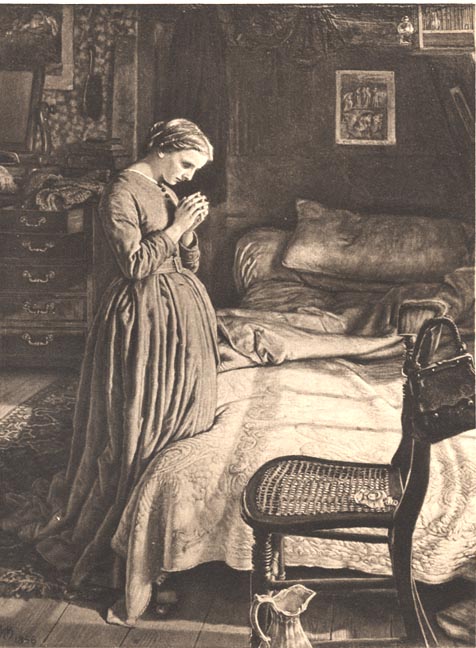by Lauren Simek

The Victorians had strong opinions about the public expression of religious belief. Nineteenth-century Evangelicalism found sincerity in expressions that came straight, as it were, from the heart, unpremeditated and unprompted by the strictures of ceremony. High Church Tractarianism on the other hand rejected Evangelical outpourings as too solicitous of an audience. As Isaac Williams, author of the two tracts that formalized the notion of “reserve” into doctrine, put it, “A want of reserve, an artificial religious tone in conversation or prayer is…proof that the person is wishing to be, or wishing to persuade himself that he is, rather than that he really is religious” (“Tract 87” V: 8). Significantly, both religious traditions advocated unselfconsciousness as key to sincerity, but they had opposing methods for achieving it.
This unselfconsciousness was not only a religious but also an aesthetic mandate, one that women writers had a particularly conflicted relationship with. Literary unselfconsciousness appeared everywhere in the nineteenth century, from William Wordsworth’s claim that “all good poetry is the spontaneous overflow of powerful feelings” and John Stuart Mill’s assertion that “eloquence is heard, poetry is overheard” to John Ruskin’s notion that “the most perfect human artists” work “without boasting,” possessing “an inner and involuntary power which approximates literally to the instinct of an animal.” Within this framework, writers who embraced a more didactic style were often accused of egotistical moralizing. Women writers most often received such criticism, but didacticism had been thrust upon them, in a way, as the lesser of two evils. Properly domiciled within the home, middle-class women writers were required to have an overt moral stance in their fiction lest they be accused of unladylike self-display for venturing into the public sphere. An embrace of a quieter modesty always threatened to associate them, ironically, with the self-knowledge of moral vanity and even licentiousness.
Nevertheless, primarily concerned with their own relationship with God, Tractarian writers like Williams and John Keble looked to women as models of the reserved unselfconsciousness they aspired to. High Church women writers like Christina Rossetti and Charlotte Yonge found this association with reserve allowed them a particular authority as women to represent religious issues in their work. But an embrace of women’s “natural” passivity always had its drawbacks, of course. In The Experience of Life (1852), Tractarian novelist Elizabeth Missing Sewell examines the difficulties posed by reserve, which required a lack of consciousness of other people and oneself in order to become closer to God. Sewell confronts the criticisms of pretentiousness that her fellow Tractarians faced for attempting such a state of reticence. Whereas Williams in his tracts on reserve ignores the impossibility of ever becoming purely unselfconscious, Sewell is compelled to address this problem head-on, having been perceived, like other women authors of the time, as trying to be selflessly unselfconscious only to impress others. Sewell’s strong connections to Tractarianism keep her committed to the idea of reserve, but a reserve that recognizes the limits of extreme unselfconsciousness and that allows for the subtle role other people play in one’s relationship to God. Forgoing her counterparts’ preference for poetry as the ideal genre for cultivating reserve, Sewell finds that the novel, with its implied relationship between author and reader, achieves a more realistic mode of reserved self-consciousness. In doing so, Sewell reveals the nuanced motives shaping her didactic literary style.
For more see Lauren Simek, “Revising Tractarian Reserve: Elizabeth Missing Sewell, Victorian Didacticism, and Novel Form.” Victorian Review, vol. 46 no. 1, 2020, p. 101-121. Project MUSE, doi:10.1353/vcr.2020.0005.
